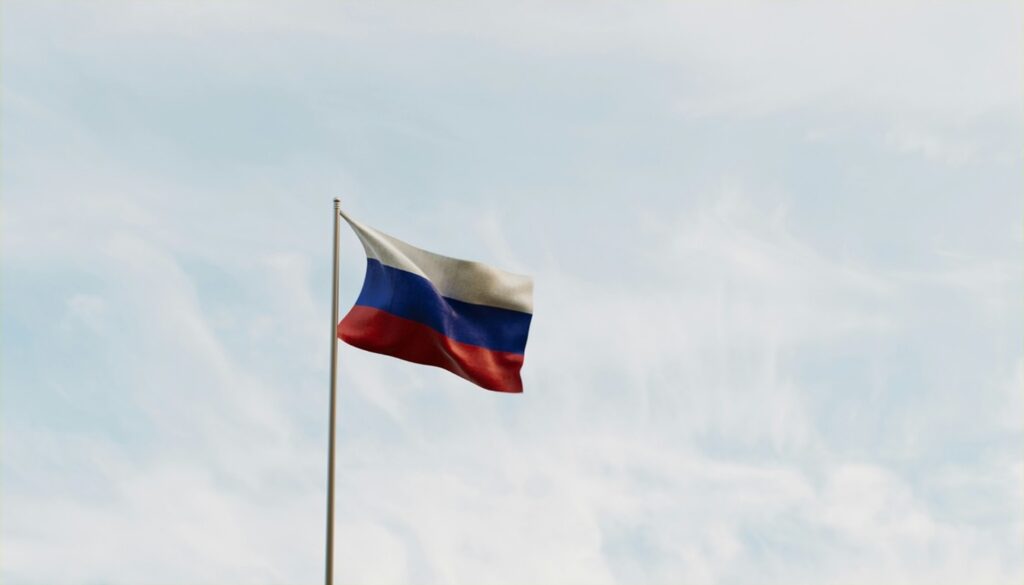Impact of Sanctions on Russia’s Arctic Ambitions: Economic Warfare in the Far North

Sanctions and the Strategic Arctic Frontier
When Western governments imposed sanctions on Russia following its invasion of Ukraine, officials expected Russian Arctic energy projects to grind to a halt. Years later, evidence suggests that the impact of sanctions on Russia in this strategic region has been far less debilitating than anticipated, with Moscow demonstrating remarkable adaptability in pursuing its northern ambitions despite international pressure.
According to The Arctic Institute, Russia’s Arctic LNG 2 liquefied natural gas project offers a perfect example of this resilience. Despite sanctions causing Western and Chinese partners like TotalEnergies, JOGMEC, CNOOC, CNPC, and Mitsui to declare force majeure, Novatek (Russia’s second-largest natural gas company) found ways to keep the project moving forward through alternative supply chains and financing mechanisms.
Technical Adaptations and Chinese Partnerships
The Arctic sanctions case study reveals how Russia has systematically circumvented Western restrictions. When sanctions cut off access to Western gas turbines from Baker Hughes, Novatek swiftly pivoted to Chinese supplier Harbin Guanghan. While this required altering the design of liquefaction unit Train 1 to operate at lower capacity temporarily and completely changing liquefaction unit Train 2 to an all-electric configuration, the project continues to advance.
This adaptation pattern extends beyond individual equipment substitutions to comprehensive strategic partnerships. According to Politico, Beijing has played a crucial role in helping Moscow weather sanctions. China has supplied over 90 percent of all Russian semiconductor imports, more than half of which have been Western-branded or produced, demonstrating how third-party countries can undermine the effectiveness of export controls.
The question of whether are Russian sanctions working in the Arctic receives a mixed answer. While they have created delays, increased costs, and forced technological compromises, they have failed to halt Russia’s strategic push to develop the region’s vast resources. Novatek is using profits from its successful Yamal LNG project to continue funding Arctic LNG 2, creating an internal financing mechanism that helps insulate the project from external financial restrictions.
The Rosatom Factor: A Critical Sanctions Loophole
A central weakness in the Western sanctions strategy concerns Rosatom, Russia’s state nuclear corporation, which has largely evaded restrictions. Rosatom has been granted almost total control over the Northern Sea Route, critical for transporting Arctic oil and gas. This relative immunity has created a significant loophole in the West’s strategy to curb Russian Arctic energy development.
The reluctance to sanction Rosatom stems from Western dependence on Russian nuclear fuel and technology. The United States remains the biggest buyer of Russian uranium fuel annually, and Russia supplies nearly half of the global nuclear fuel market. This dependency makes it politically challenging to impose comprehensive sanctions on Rosatom, inadvertently providing Russia with a powerful tool to support its Arctic energy ambitions.
Rosatom’s expansion into non-nuclear sectors further undermines sanctions effectiveness. The corporation’s recent acquisition of Fesco, one of Russia’s largest shipping companies, gives Rosatom the ability to accept payments in Chinese yuan for energy-related transactions, effectively sidestepping Western financial sanctions on dollar and euro payments.
The China-Russia Arctic Partnership
The deepening China-Russia partnership in the Arctic represents perhaps the most significant factor undermining Western sanctions. China and Russia have worked toward establishing a “Polar Silk Road” which would give Beijing a presence in the polar north, where otherwise it would have none. This collaboration directly challenges Western attempts to isolate Russia economically.
Chinese investment in Russian Arctic projects has grown substantially despite EU sanctions Russia policies. Chinese companies maintain significant stakes in key Russian Arctic energy projects, with combined holdings of 30 percent in Yamal LNG and 20 percent in Arctic LNG-2. These investments provide crucial capital that Western sanctions sought to deny Russia.
The partnership extends beyond existing projects to future Arctic development. China has agreed to cooperate on a major mining project with Russia, is considering joint development of oil and gas fields, and plans to collaborate on a trans-shipment oil complex. These arrangements directly undercut Western attempts to limit Russia’s Arctic economic development.
The Challenge of Enforcing Arctic Sanctions
Several factors complicate the enforcement of sanctions in the Arctic region. According to Voice of America, even well-intentioned countries often lack the administrative capacity to properly enforce restrictions. The remote and harsh Arctic environment creates additional monitoring challenges, making it difficult to verify compliance with export controls and financial restrictions.
The complexity of global supply chains further undermines enforcement efforts. According to Politico, “Russia has been able to circumvent sanctions through a growing ‘shadow fleet’ of vessels that operate outside of Western sanctions regimes” to transport Arctic resources to global markets. These vessels often change ownership, flags, and insurance providers to obscure their connections to sanctioned entities.
These implementation challenges help explain why sanctions are not working as effectively as Western policymakers hoped. According to Noerr, EU sanctions “lack both a long-term plan and flexibility. Accordingly, the collateral damage to EU companies is significant.” This assessment applies particularly to Arctic sanctions, where the remote location and specialized technology requirements create additional complexity.
Unintended Consequences for Western Companies
The sanctions on Arctic development have created significant unintended consequences for Western companies, particularly in the energy and maritime sectors. According to Lloyd’s List, the maritime insurance sector has experienced major disruptions due to ambiguous language in EU sanctions legislation, creating legal uncertainty for insurers covering vessels operating in Arctic waters.
Western energy technology providers have also suffered losses as Russia turns to alternative suppliers. China has stepped in to provide equipment previously supplied by Western companies, capturing market share that may be difficult to recover even if sanctions are eventually lifted. This permanent loss of business represents a significant cost to Western industry.
Conclusion: Toward More Effective Arctic Sanctions Strategy
The limited effectiveness of sanctions on Russia’s Arctic ambitions highlights the need for policy recalibration. Moving forward, Western governments might consider several modifications to increase impact while reducing unintended consequences.
First, addressing the Rosatom loophole would require developing alternative uranium supply chains to reduce Western dependence on Russian nuclear fuel. Second, strengthening coordination with Arctic Council members not aligned with Russia (the “A7” group) could enhance monitoring and enforcement capabilities in the region. Finally, more targeted sanctions focused on specific Arctic technologies rather than broad sectoral measures might improve effectiveness while minimizing collateral damage.
The Arctic case study demonstrates that economic pressure tools face distinct challenges in remote regions where resources are strategically valuable and alternative partners exist. Without adjustments that account for these realities, Arctic sanctions will likely continue to create costs and delays for Russia without fundamentally altering its strategic calculus or development trajectory in this increasingly important frontier region.















